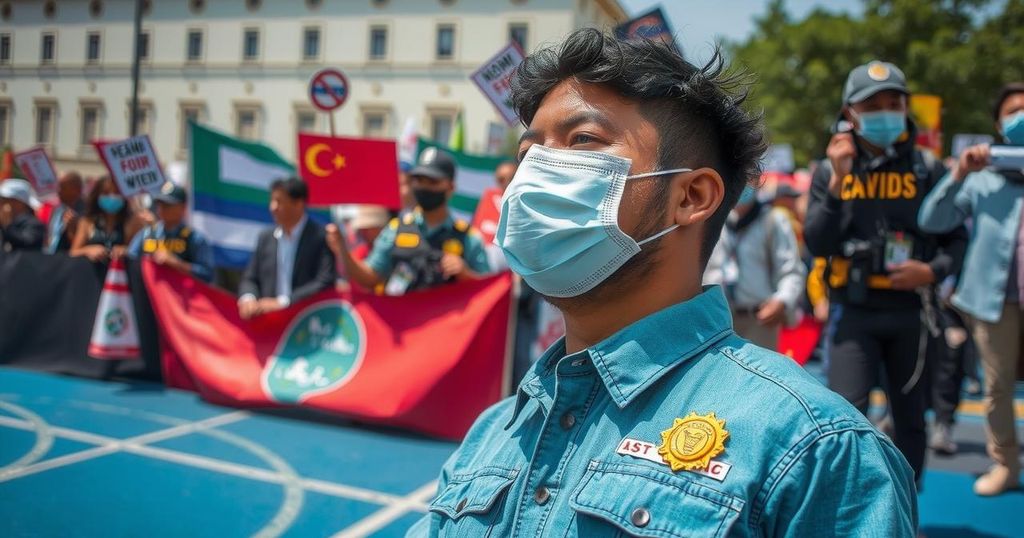Global Trends in the Repression of Climate and Environmental Protests

The global repression of climate and environmental protests is on the rise, characterized by anti-protest laws, criminalization, intensified policing, and even violence against activists. Despite increasing risks, the frequency of protests has grown significantly since 2018, highlighting a pressing need for governments to engage constructively with climate issues rather than suppress dissent. The research underscores the necessity for tailored approaches to safeguard activist rights worldwide.
The repression of climate and environmental protests is escalating globally, affecting both democratic and authoritarian regimes. Recent research conducted by scholars from the University of Bristol has documented this concerning trend, noting that such criminalization manifests in various forms across different political landscapes. Distinctions between climate protests, which advocate for systemic change to address carbon emissions, and environmental protests, which target specific harmful projects, are essential for understanding this phenomenon.
The forms of repression observed include the introduction of anti-protest laws, which expand governmental powers to curtail protests and impose new legal penalties. Since 2019, at least 22 new laws have emerged across 14 countries, allowing authorities to intervene more aggressively. Moreover, existing laws originally intended for combatting terrorism are increasingly being applied to environmentalists and climate activists, leading to alarming prosecutions. For instance, in Germany, climate activists were charged with accusations typically directed at organized crime.
Policing tactics have intensified, incorporating measures such as surveillance, violent suppression, and collaboration with corporate entities to dismantle protests. Notably, in Germany, police have allegedly worked with a private energy company to silence coal mine demonstrators. Furthermore, activists in countries such as Brazil and the Philippines face dire risks, with many falling victim to murder or enforced disappearances perpetrated by criminal organizations and state agencies alike.
Despite the growing repression, climate and environmental protests have surged since 2018, representing a significant segment of public dissent across various nations. Recent data reveals that climate protests account for about 4% of all recorded protest activities globally, with significant variations in police responses ranging from violent confrontations to systematic arrests. For instance, as high as 27% of climate protests in Canada result in arrests, compared to lower rates in France but higher intensity in places like Peru and Uganda.
In conclusion, while the repression of climate activism takes on diverse forms worldwide, the underlying similarities remain striking. By criminalizing these movements, governments effectively stifle critical dialogue on climate change, diverting attention from their own inaction on these pressing issues. As the situation evolves, the need for a renewed commitment to protect the rights of protestors and foster dialogue on environmental matters has never been more pressing.
The increase in the criminalization of climate and environmental protests reflects a broader trend observed globally, where states respond to rising activist movements with repression. This phenomenon spans various political systems, from established democracies to authoritarian regimes, indicating a systemic issue rather than isolated incidents. Understanding the distinction between climate protests, which address overarching climate change issues, and environmental protests, which focus on local environmental harms, is critical to grasping the nature of repression and the diverse responses observed worldwide.
The repression of climate and environmental activism is a growing global concern that manifests through various oppressive measures including legal criminalization, aggressive policing, and even violent reprisals. This investigative report highlights that while the mechanisms of repression vary by context, the overall trend signifies a troubling refusal by states to engage constructively with pressing climate issues. Moving forward, there is an urgent need for states to guarantee the rights of activists and take genuine action on climate change, fostering an environment where dissent can exist freely without fear of reprisal.
Original Source: theconversation.com





